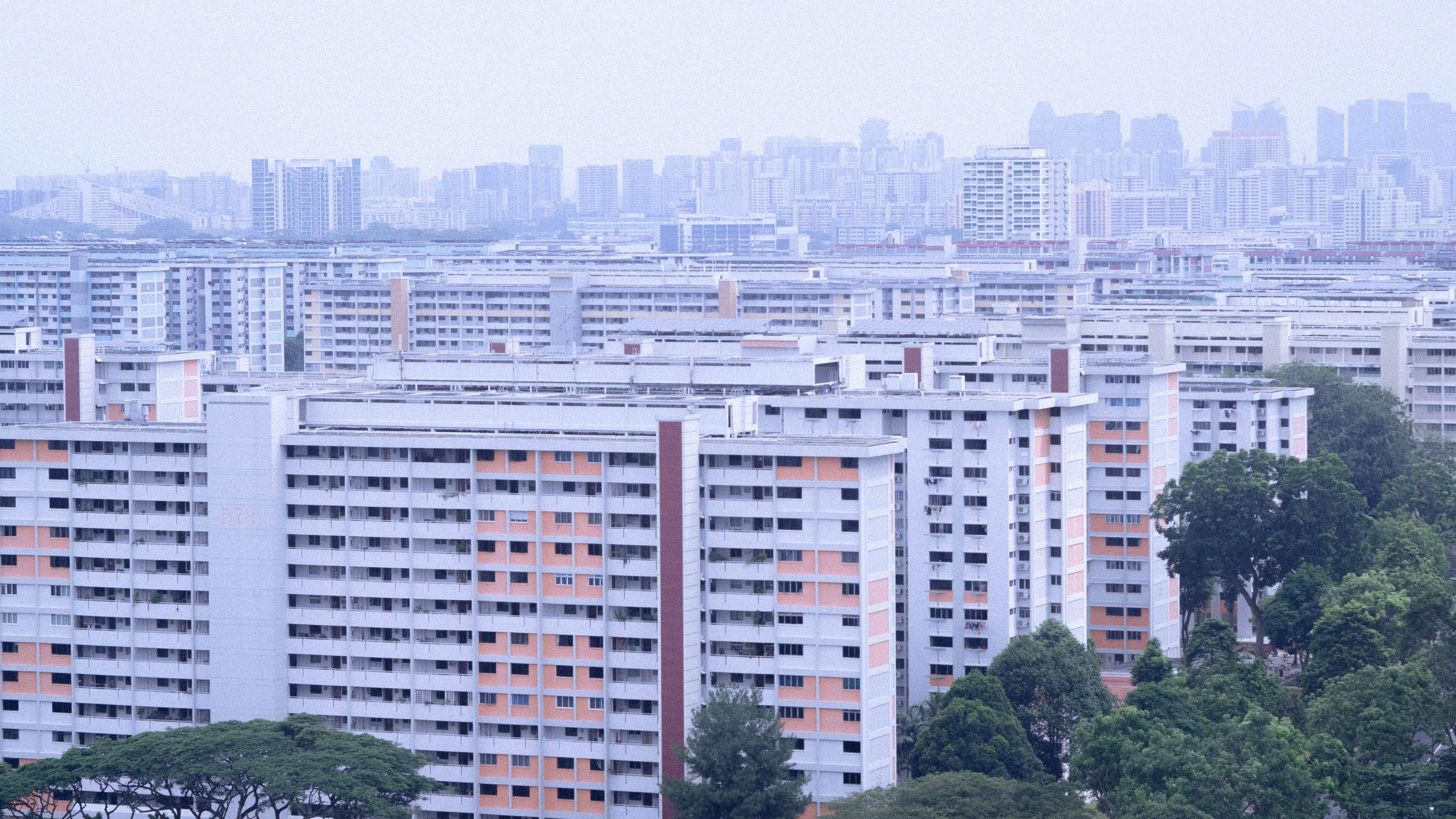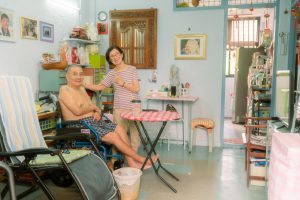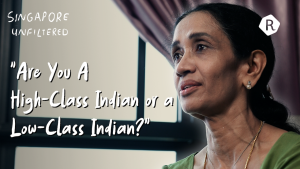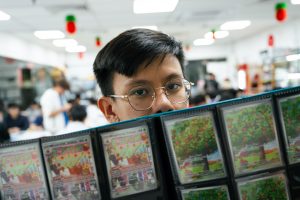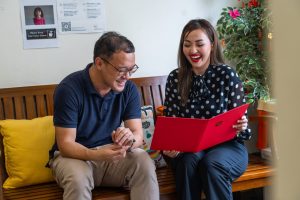Anyone who says you can retire early by investing in property (or multiple properties) is usually not telling the entire story. Beyond mortgage repayments, there will be the interest to service, management fees to foot, and tenants to manage. If there are no tenants, the investment crumbles.
In this pandemic, most of us would be on cash savings mode. Our stocks are being battered, oil prices are shit, and the dealer still wins even when the casino’s empty. Some say gold is the safe haven. Others say bonds.
What about property? Is parking money into four walls and a roof pandemic-proof?
Fun fact: I currently own 4 properties. I collected the keys to my fourth when I turned 40.
Not-so-fun fact: I’m not retired. I still have four mortgages to pay.
Many of us yearn to have a safety net beyond our measly monthly salaries. Some of us bet on life savings, stocks, cryptocurrencies, weekly 4Ds. For me, unless I tio TOTO, or I set up a successful company (and sell it), I don’t see myself retiring anytime soon. The reason is simple: despite owning four properties, I’m also in debt. So why do it anyway?
As a 44-year-old, I understand the allure of seminar ads on property investing and retirement. They appeal to the overworked salarymen—feeding on our desires to retire early. Most of these seminars usually dangle free workshops, before tossing a four-figure course fee if you want insider tips. The in-thing today is real estate crowdfunding (REC), where you split rental income with a bunch of dreamy-eyed strangers and hope none of them bail out on you.
But here’s some advice: before you go all-in, always check the MAS investor watchlist and follow FB groups like Money Sense. Trust me, the last thing you want is to lose and fold.
As a traditionalist in property investment, each property I’ve bought is truly a lesson in self-discipline. It’s definitely a harder road to property investing compared to RECs. If you’re young and you’ve saved enough for a property, ask yourself this: are you buying a house to earn passive income or do you want to own the keys to the house? Why not both?

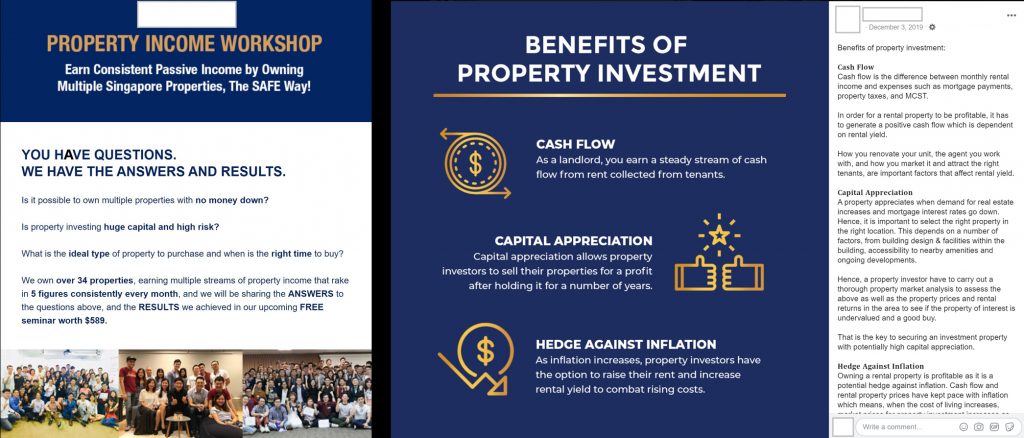
My First Property Was a Lesson in Necessity
There are five main asset classes on this planet. Equities (like shares), bonds (fixed-interest stocks), commodities (gold, silver, etc.), cash (what’s in your bank and under your mattress) and property. The common advice you’ll hear in life is to diversify your assets as much as possible.
If property is an asset class you’re considering, can you afford to own the keys? And why? My first property came not out of greed nor a desire for passive income. It was a necessity.
My father has always worked odd jobs, so he never really held a stable, pension-promising wage. Living in Malaysia, we moved from rental home to rental home, never settling down in a permanent house. Fortuitously though, he married my mum, a Singaporean.
So, when I set foot in Singapore and became a PR, I worked for five years before I got my first house. It was a resale HDB flat I jointly owned with my mum, using both our CPFs and a S$20,000 Housing Grant. She became the primary owner because she was a Singaporean (I was not). I moved into the S$200k three-bedder when I was twenty-five.
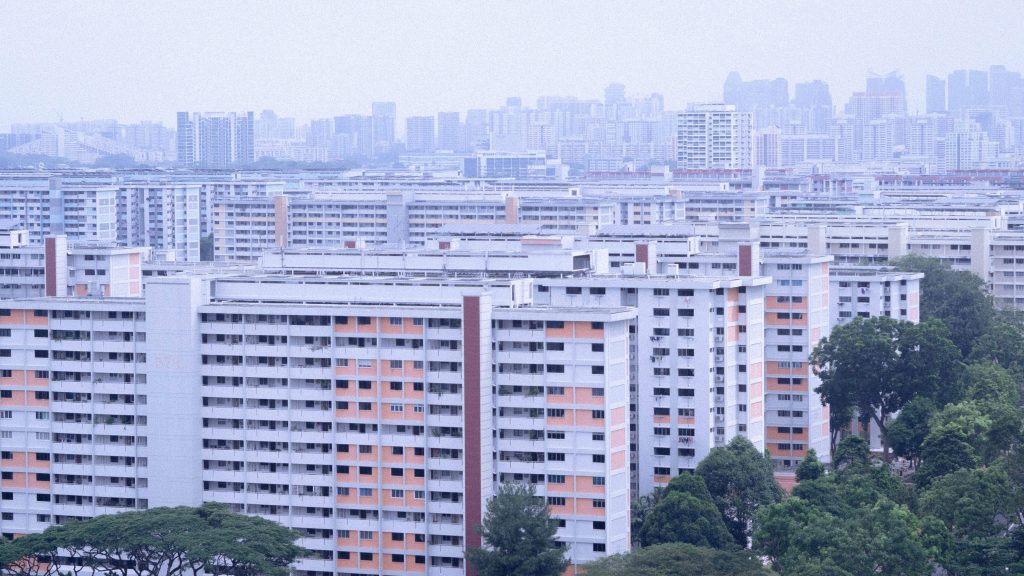
Every month, part of my CPF contribution goes to paying the HDB housing loan. Interest now is 2.6% but I’ve since refinanced it with a bank at lower interest. Anyway, I can convince my mum to rent out a room for passive income, but that’s up to her. Also, remember this: if I were to sell the house, the CPF I used to service the loan needs to be paid back to CPF, with interest.
Years passed, kopitiams below my housing block changed, I got promoted, and my dad and siblings moved in. I was able to travel for work and spend comfortably, because the loan was serviced via CPF (so no cash outlay from my pay cheque). I thought that was that—I was living every young Singaporean’s dream of being a homeowner thanks to the Government.
Today, other than balloting for a new HDB, HDB resale flats are costly. It all depends on size, location, amenities and the outstanding lease (99 years or less). Most properties appreciate in value over time because property demand in Singapore is ridiculously persistent.
I remember balloting for Pinnacle@Duxton in 2005. The five-roomer was S$400K. Today, its resale value is worth over S$1m! After twenty years, my HDB resale flat is valued at S$400k (100% appreciation). Would I sell it? No, because it serves as a home for my parents. It’s a necessity I can’t do without.
My Second Property Was A Lesson in Foreign Exchange Risks
When I turned 32, the startup I worked for was bought over by a larger one. As a minority shareholder, I was suddenly flush with cash. My initial instinct was to pay off the HDB loan. But I didn’t do that. I didn’t want to pay off a loan and continue staying with my parents in a house I helped buy.
Instead, I decided to invest the cash in a home of my own. I looked around for private apartments in Singapore.
Unfortunately, the country underwent one of its biggest property booms of all time. Foreigners (ie. PRCs) snapped new launch units like Singaporeans queue for bak kwa on Lunar New Year. Prices skyrocketed. I was ironically house-hunting in a season of extremely high demand.
I decided to go into investment mode. I was single then. I figured I might someday migrate to a different country. At that time, Australia, New Zealand, and UK property seminars were hot. Many touted proximity to good universities (“your child may stay there one day and walk to school”). I ended up purchasing a freehold, two-bedroom CBD apartment in Melbourne, Australia, which was a 5-minute walk to RMIT and 10 minutes to Queen Victoria Market.
The sale price was about AUD350K (S$470K then). I paid about AUD125K/S$168K upfront. The exchange rate with Singapore was against me at the time (S$1.34 to AUD1), but I didn’t want PRCs to grab everything—I went ahead anyway. The mortgage loan was with a Singapore bank—thirty-year repayment, with the interest rate fluctuating to as high as 4% at one point. I needed the rent to at least cover the principal and interest repayment.
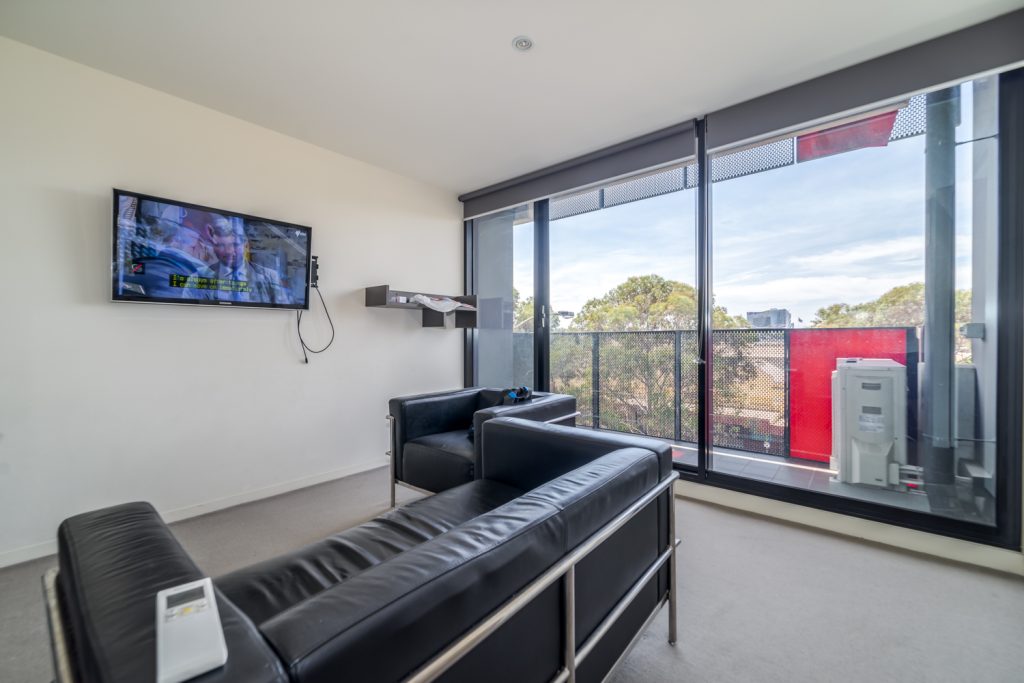
In hindsight, owning an overseas property is risky and expensive. First, I needed to have enough to afford the down payment, legal fees, subsequent payment tranches, and quarterly management fees (while exposing myself to foreign exchange risk). I also needed to pass the Australian FIRB check and ensure I have rent-paying tenants living in the property at all times.
Without rent, I would struggle to make mortgage repayments, and banks love piling interest and penalties on homeowners who miss a deadline. Note: Don’t ever be late on mortgage repayments.
Also, with overseas property, I had the option to apply for a mortgage loan through an Australian bank like Bank of Melbourne or Commonwealth Bank. The downside to that is I would have exposed myself to exchange rate risks and Loan-to-Value ratio top-ups.
This happens when the Australian bank realizes the property’s value has dropped a lot and wants you to pay the difference. Top-ups don’t usually happen in Singapore (property prices usually level off after a major crash). To avoid these headaches, I went with a Singapore bank.
I engaged an Australian rental office to advertise, settle, and manage the tenants for me. Every month, they send me a report, detailing the rental income (AUD2,600/S$2,200 a month before comms and fee deductions). I used that income to pay off the monthly mortgage (S$1,700), which would leave me with an additional S$200-300 of rental income to spend every month, right?
Wrong.
First, there’s the annual property tax, which I pay a local firm S$400 a year to settle. Second, items in the apartment break down over time—toilet flush doesn’t work, sink chokes, fire alarm is faulty. The landlord (me) has to fork out extra cash for repairs.
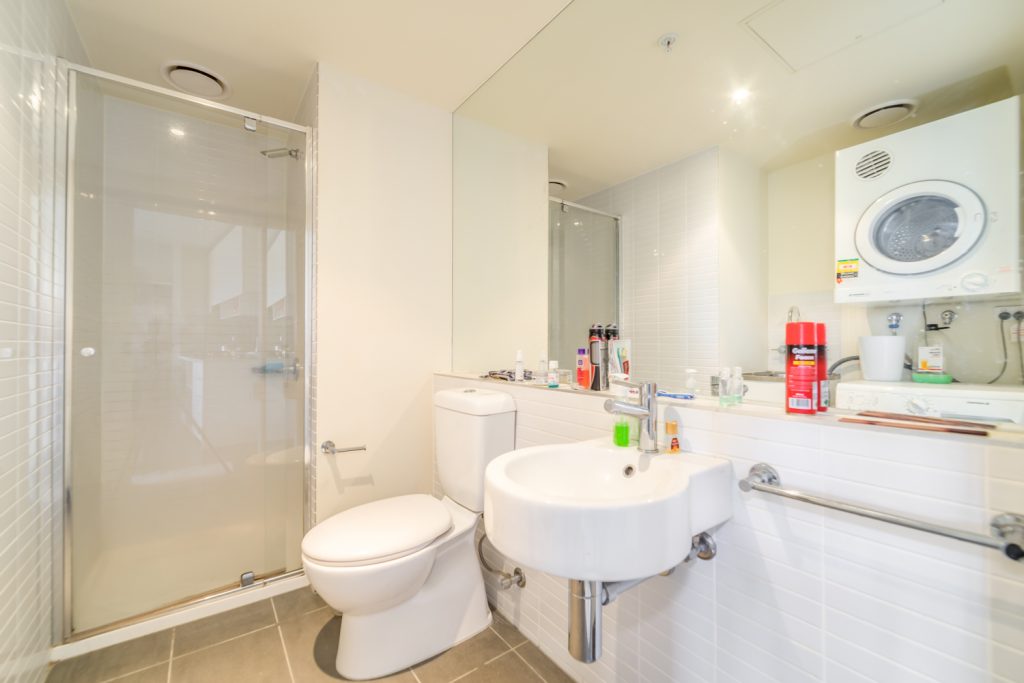
Selling the property gets trickier. Right after I collected my keys, Australia began pushing for legislation on a new capital gains tax. This means that for a foreign owner like me, selling an Australian property will get heavily taxed by the Australian government on the gain. After 11 years, the value of the apartment is now AUD425k (21% appreciation) but I can only sell the property to an Australian (not a foreigner). Hey mate! Wanna buy an a-part-ment? Like I’ve said: risky, expensive and restrictive.
My Third Property Was A Lesson in Regulatory Timing
The third property came when I turned 37. I was still a Singapore Permanent Resident with a Malaysian passport. I figured if my family ever wanted to move back to Malaysia, at least there would be a house there waiting for them (we could then decide what to do with the HDB flat).
Someone showed me a block of single-storey terrace houses in Johor. Each had more space than two HDB flats combined, with a front garden, gated guardhouse, and personal garage.
I bought a freehold for RM200,000 (S$67K). The downpayment was a low RM20,000 (S$7,000). While waiting on my family’s decision, I rented out the house. Malaysia’s bank interest on property loan is probably the highest I’ve ever seen (5-6% per annum).
The general rule is, if the interest rate is high, try to pay off a portion or all of the principal when you have enough savings to do so. This way, you avoid overpaying on interest over time.
Unlike my Australian property, rental income was measly, and I was forced to top-up to cover the loan repayments plus interest. So I didn’t get much by way of rental income from this property.
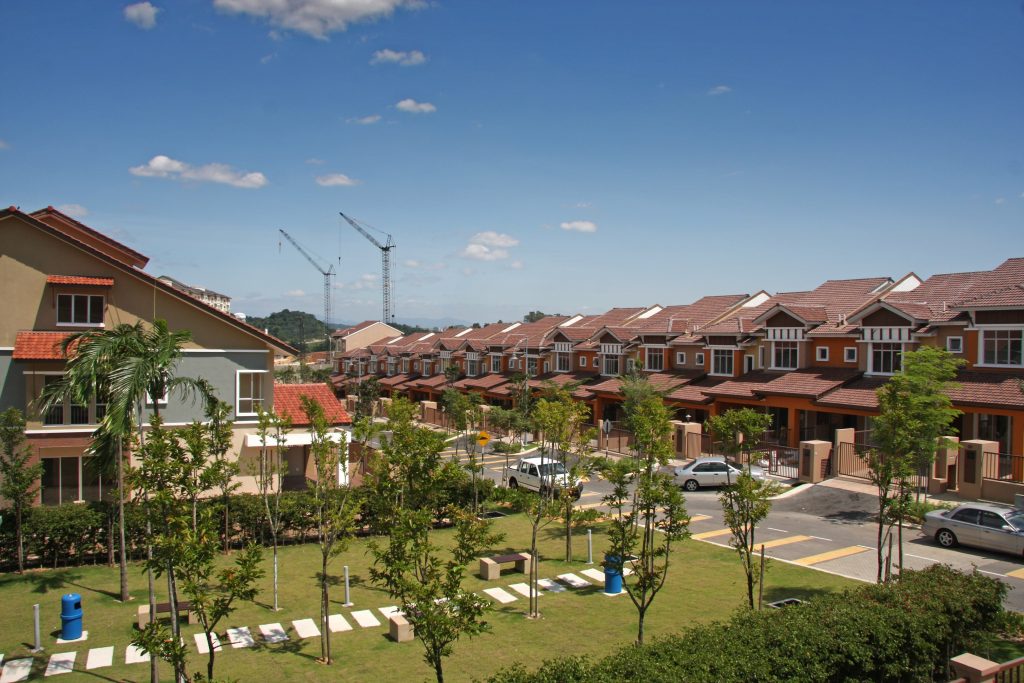
Months after I got married and became a Singaporean, the Malaysian government declared a minimum property value of RM1m for foreign home buyers. It meant I would never have been able to purchase the terrace house if I had waited.
With the house now valued at RM320K (a 60% appreciation), I might consider selling it instead (I need to find a buyer and a Malaysian proxy first).
My Fourth Property Was A Lesson in Luck
Finally, since I now solely own two overseas properties and co-own the HDB with my mum, there’s no way I can buy another HDB or Executive Condominium (EC) with my wife. To raise a family, we needed a matrimonial home. So we went private. Our condo cost S$900K.
The kicker here is I wouldn’t be eligible for an 80% loan. Reasons: this isn’t my first property, and my total debt servicing ratio and age wouldn’t qualify anyway.
Thankfully, my wife was younger and a first-timer. She became the sole owner, with an approved 40-year housing loan with an interest rate fluctuating between 1.5 to 2.4%. I was initially hesitant to purchase the private property (I was already servicing three mortgages), but her instinct persuaded me to.
It turns out she made the right decision.
Weeks later, then National Development Minister Khaw Boon Wan announced cooling measures for home buyers. If we had waited just a few more weeks, we wouldn’t have qualified for the loan due to additional restrictions and increased ABSD (additional buyers’ stamp duty). My wife and I were extremely lucky. I was 40 when we collected our keys.
After four years, the property’s worth S$1.18m, which is a 31% appreciation in value.
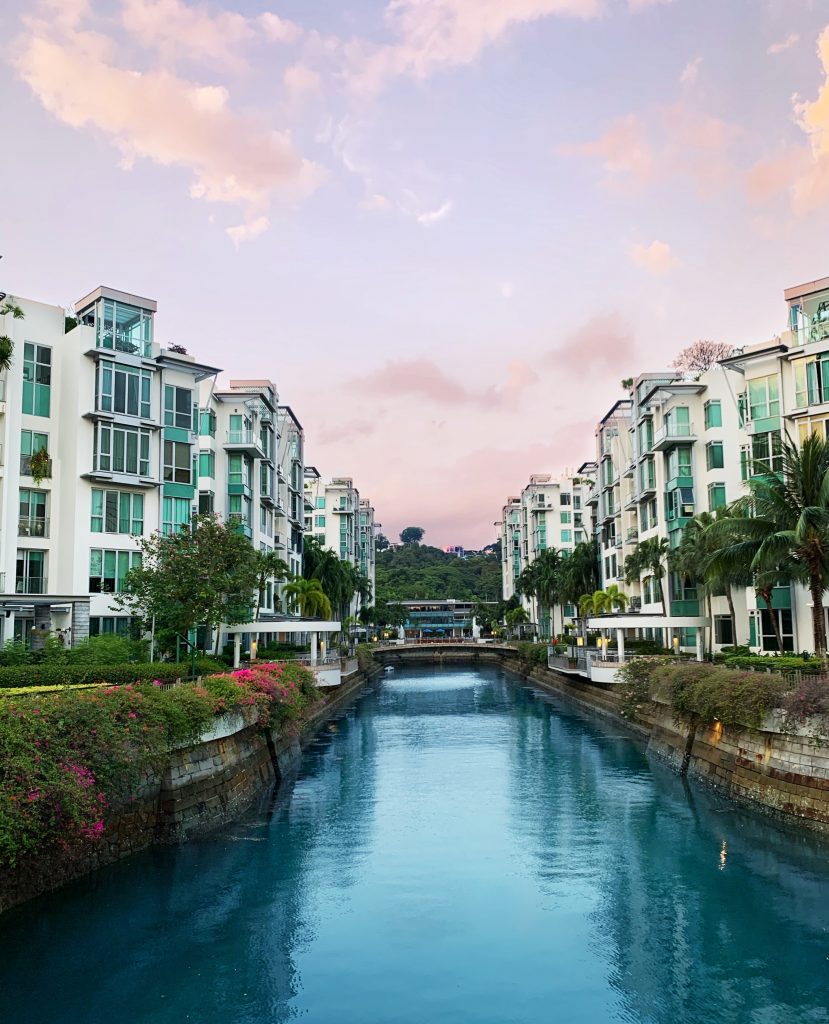
Owning property has its ups and downs. Owning more than one requires a combination of financial readiness, gut instinct, regulatory timing, and luck.
As a salaryman, every property I’ve committed to required an initial down payment and subsequent payment tranches. For overseas properties, rental income is key to ensure monthly loan repayments. I have to monitor foreign exchange rates and keep my tenants happy so they will stay and take good care of my properties.
Do I have any regrets about investing in so many properties? From a short-term perspective, yes.
One, I don’t have as much monthly disposable income to buy better things on a month-to-month basis. I still buy and sell stocks, but they fluctuate too much and I give up after some time. Occasionally, I dabble in 4D, TOTO and cryptocurrencies. Holidays with my family are once a year at most (and that usually depends on whether our jobs are steady and we’ve earned bonuses).
In the long-term, I think my regrets will be worth it. With some cash savings and insurance, most of our salaries go into our houses. As long as my wife and I can meet our monthly mortgage repayments, we will be fine. If property values rise, we can sell them and make a profit or hold them to pass on these assets to our children.
Property and investments during Covid-19
Is it wise to invest in property during this current Covid-19 situation? I think property prices might fall actually. I suggest waiting a bit if you plan on buying for yourself. Do a study on how Singapore property prices dipped, rebounded and then stabilised during the Asian Financial Crisis of 1997, SARS 2003 period and Global Financial Crisis in 2008. The trendlines usually tell a story.
What usually happens, as property prices dip in a crisis, is more buyers will flock into the scene (to hell with the pandemic … they’d probably be saying). This eventually forces the government to introduce new measures (restrictions, higher ABSD) to cool the market. The last thing the government wants is a bubble or bust either way. From my experience, you need gut instinct to sense when the needle rises and the knife drops. Or better yet, marry your spouse if she’s your lucky charm.

